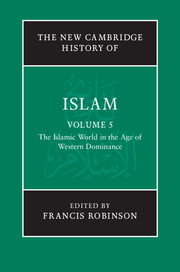Introduction
Published online by Cambridge University Press: 28 March 2011
Summary
Muslim societies since 1800 have been influenced by two developments of the first importance. First, the Islamic world system, which from its emergence had walked hand in hand with power, came to be dominated by forces from the West. This domination, moreover, was not just one of conquest and rule; there came with it economic, social, intellectual and political forces of great transformative power. Second, every Muslim society came to be animated by movements of Islamic revival and reform. These movements took different shapes according to the circumstances of the societies in which they flourished. By the end of the twentieth century the programmes of these movements were distinctive features in the lives of most societies and the defining features of some. From the outset it should be clear that the roots of religious reform lie deep in the pre-modern history of Muslim societies, that aspects of the movement were already manifest in the eighteenth century and that their prime purpose was inner renewal. However, the period of Western dominance gave urgency and extra purpose to these movements. From context to context there were different interplays between Western power and manifestations of Islamic revival. As time went by Western understandings of Muslim societies came increasingly to be coloured by their experience of the revival. In the same way movements of revival were both shaped by the contact with the West and energised by their resistance to it.
- Type
- Chapter
- Information
- The New Cambridge History of Islam , pp. 1 - 28Publisher: Cambridge University PressPrint publication year: 2010



